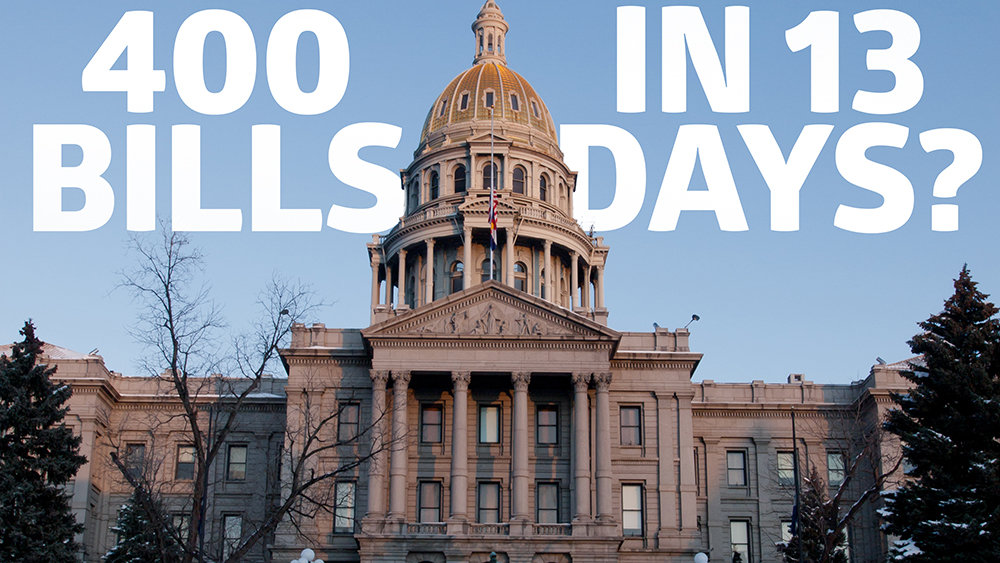- An Alliance For Community Action
- (970) 256-7650
- info@WesternColoradoAlliance.org
Legislative final push!
Tough road ahead for climate & energy bills
With around 400 active bills and just 13 days left to wrap up, we’re entering the final stretch of this year’s Colorado Legislative session. While several of our key bills are progressing well, we’re facing significant challenges on some of our climate and energy legislation this year. But the fight is not over and we’ll keep pushing to pass laws to protect air quality and public safety, to hold oil and gas companies accountable to taxpayers, and to advance clean energy in our region.
As history has shown, climate and energy policy is a challenging topic in the Colorado legislature. And despite our Governor’s commitment to reducing Colorado’s carbon emissions, he has actively opposed our air quality and oil and gas reform bills. We were disappointed with the scaling down of bills like SB-166 and HB-1330 and the defeat of HB-1367. Thankfully, our pipeline safety bill, HB-1357, is still moving forward and we are hopeful it will usher in a new era of leak detection and repair rules for previously unregulated oil and gas pipelines.
But there is good news too! A much anticipated solar bill, SB24-207 (co-sponsored by Mesa County’s own Rep. Matt Soper) was introduced last week. This bill, “Access to Distributed Generation,” will give lower-income households access to clean energy at a lower cost. We hope this bill will help spread the benefit of solar projects to all members of our communities.
Yesterday, we also saw the long-awaited introduction of a clean energy siting bill SB24-212, “Local Govs Renewable Energy Projects.” This bill has had a bumpy road to introduction and is much different than expected, but will provide a good roadmap and resources for local governments looking to develop responsible land use codes for clean energy projects (similar to the land use rules we helped pass yesterday in Mesa County!).
To wrap up, the finish line is in sight. Our top bills continue to flow nicely through the legislature and we believe, without any unforeseen issues, the “Regenerative Agriculture Tax Credit” and the “Analysis of Universal Healthcare Payment System” will become law. However, the session isn’t over yet — there might be unexpected curve balls and need for quick action before the session wraps up on May 8.
Stay tuned!


